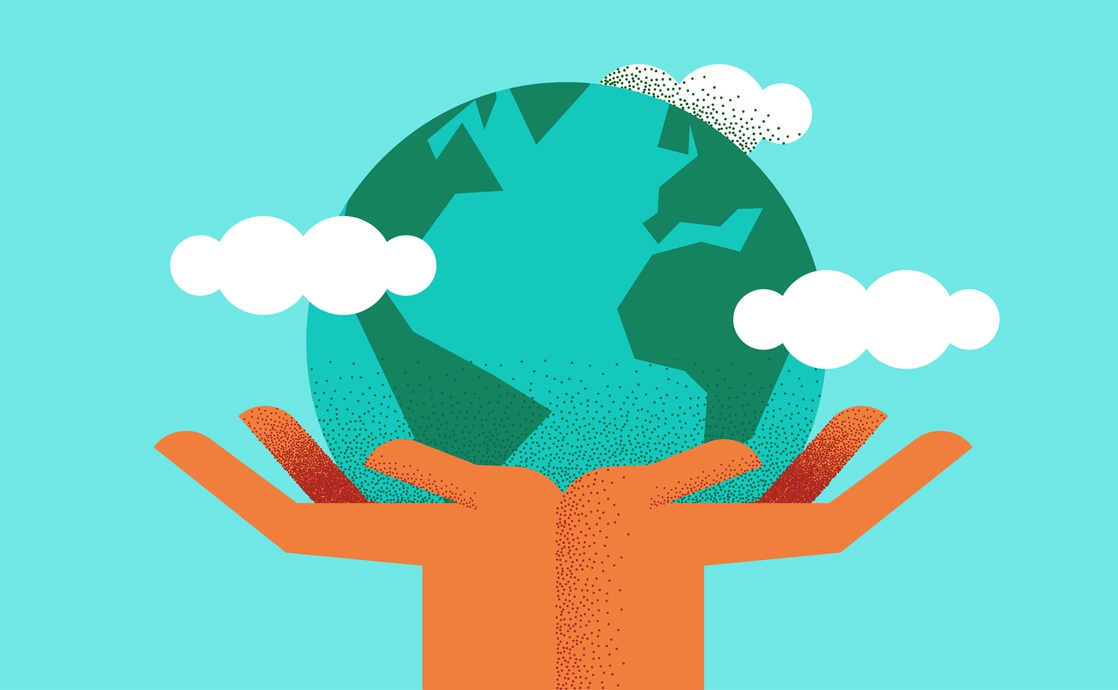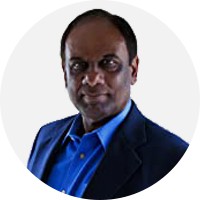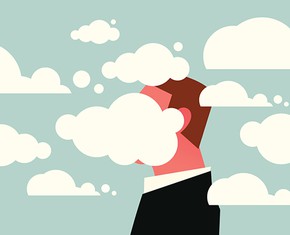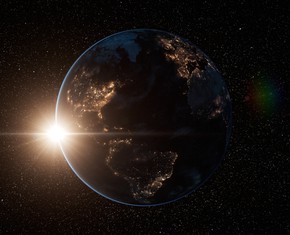The views expressed in our content reflect individual perspectives and do not represent the authoritative views of the Baha'i Faith.
Being conscious of what we can and can’t see is fundamental to being human and differentiates us from other species. Beyond personal perceptions is collective consciousness, and when that evolves to a universal level, it becomes the oneness of humanity — a concept still in its infancy.
In August 2018, I visited Mauritius and gave a talk to a large audience, in which I briefly mentioned the oneness of humanity. An attendee of that gathering asked, “Will the unity of humanity ever happen?”
Another person said, “No, it will never happen.”
“I am convinced it will, but it will take time,” I replied.
Five decades before, when I was presented with the concept of humanity’s oneness, my reaction had also been one of skepticism. But since then, my awareness of human beings has morphed into a different vision, mainly caused by my experiences with people of different colors, creeds, religions, and social classes.
Though battered by unforeseen calamities, unity is our collective destiny. There is also a dynamic interaction between personal and collective consciousness, and one influences the other. The Baha’i Writings say that we all “have been created to carry forward an ever-advancing civilization.” Let’s look at a moment in history that illustrates this well.
During the Renaissance, Galileo Galilei — astronomer, physicist, engineer, philosopher, mathematician, and father of science — observed the sun and planets, especially Pluto and Saturn, with the newly invented telescope. During his time, the accepted concept of the universe, known as the geocentric model, showed that the sun, moon, stars, and planets all orbited the Earth. Galileo’s observation contradicted this longstanding belief, and he concluded that the sun, not our planet, was the center of our galaxy.
RELATED: Galileo Goes to Jail — Or Does He?
The Roman Inquisition investigated the matter in 1615 and concluded that Galileo’s heliocentrism was “foolish and absurd in philosophy, and formally heretical since it explicitly contradicts in many places the sense of Holy Scripture.” The Inquisition tried Galileo, found him “vehemently suspect of heresy,” and forced him to recant. He spent the rest of his life under house arrest. The authorities continued to harass him with requests to recant publicly, but he continued to write and singlehandedly changed our understanding of our solar system. This science paved the way for amazing discoveries, such as finding billions of stars, countless galaxies, and the existence of black holes.
This outstanding achievement happened only because of Galileo’s courage to present the idea while knowing opposition to it would be fierce. This act was a sacrifice of the highest order for the progress of humankind and teaches us a valuable lesson on perception: While every day, I see the sun move from east to west, giving me a clear external perception of the sun going around our planet, science proves reality is different. What we see is not always real.
In the last few years, it has looked like the idea of unity and harmony of the global family is drowning in a sea of tribulations. Setbacks happen and will continue to occur, but in no way will the spirit of achieving a harmonious society — one free of hatred, rancor, and strife, be dampened; rather, it is a yearning in every human being.
RELATED: What Can We Do to Face the World’s Pain?
Baha’u’llah, the prophet and founder of the Baha’i Faith, said: “True peace and tranquility will only be realized when every soul will have become the well-wisher of all mankind… In the firmament of truth there hath never been, nor will there ever be, a brighter star than this.”
According to the Baha’i writings, our collective consciousness has to change a lot to achieve the enormous potentials humanity is endowed with. As Abdu’l-Baha, the son of Baha’u’llah and his designated successor, explained: “This earth is one household and the nativity of all humanity; therefore the human race should ignore distinctions and boundaries which are artificial … the reality is that humanity is one … Therefore false distinctions of race and nativity, which are factors and causes of warfare, must be abandoned.”
Sometimes it is hard to see a clear path towards peace and harmony. But as an optimist, I detect hope and encouragement around me. I’m reminded of what author Lynne McTaggart wrote in her book “The Intention Experiment: Using Your Thoughts to Change Your Life and the World.” As in her many other books, McTaggart explores the science of consciousness, and her ideas for raising it — things like observing and reflecting, stepping out of your comfort zone, and keeping your ego in check — can help us create happier, more fulfilled lives, and help foster unity with others.
There are countless numbers of people who are, like Galileo Galilei, changing the world today. They recognize humanity’s oneness — and act accordingly — even though some people around them still don’t. We are a product of our society, but we also have the power to re-create our social surroundings. Don’t be shy about making a big difference. You are not alone in being an agent of change.
















Comments
Sign in or create an account
Continue with Googleor